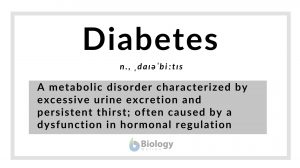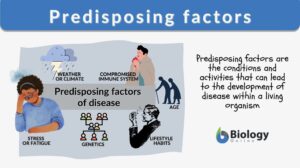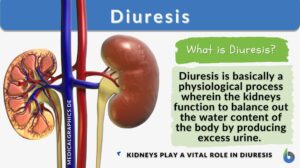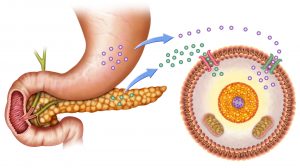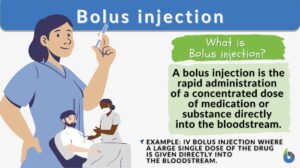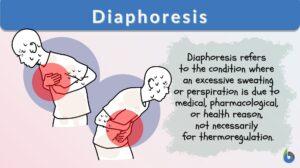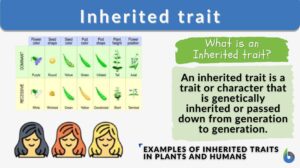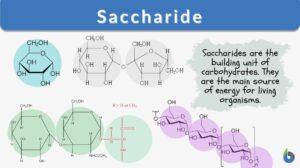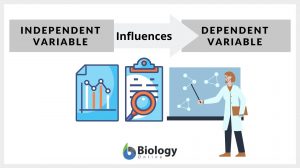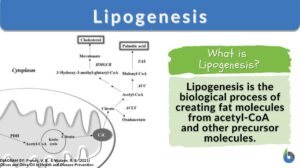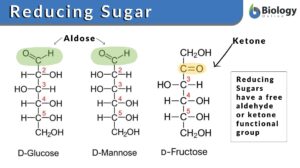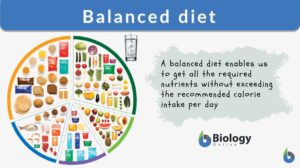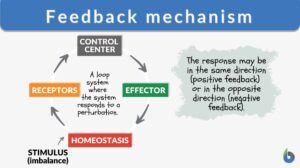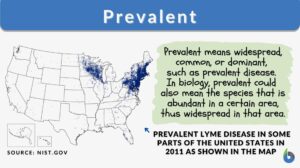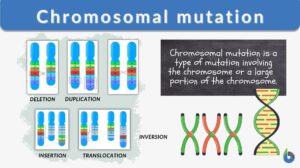Search Results for: diabetes
Predisposing factors
All organisms can be born with or develop a disease at any point in their lifetime. When someone is born with a disease, it... Read More
Addressing the Unmet Medical Need for Safe and Effective Weight Loss Therapies
Perspective Addressing the Unmet Medical Need for Safe and Effective Weight Loss Therapies Cynthia M. Arbeeny Address... Read More
Adipose tissue
Adipose Tissue Definition Adipose tissue, a specialized variety of connective tissue, is composed of lipid-rich cells known... Read More
Polygenic trait
Polygenic Trait Definition Polygenic trait refers to a trait that is controlled by multiple non-allelic genes. These genes... Read More
Sugar Homeostasis
Blood Sugar Regulation As described in Cell Biology tutorials, the body requires volumes of glucose in order to create ATP.... Read More
Bolus injection
A bolus injection is the act of administering a dose of medication or substance directly into the bloodstream by injection.... Read More
Regulation of Organic Metabolism, Growth and Energy Balance
Organic Metabolism Events of Absorptive and Post-absorptive States. The absorptive state is the period during which... Read More
Diaphoresis
What is Diaphoresis? Diaphoresis is referred to excessive or profuse perspiration or sweating which may be due to... Read More
Glycocalyx
What is the Glycocalyx? The glycocalyx is a polysaccharide-based gel-like, highly hydrous cellular thin layer, covering... Read More
Inherited traits
What are Inherited Traits? The characteristics or traits that are passed from parents to offspring are known as inherited... Read More
Saccharide
Saccharide Definition What is a saccharide molecule? A saccharide is the unit structure of carbohydrates. In biochemistry,... Read More
Glycolysis
What is Glycolysis and Why is it Important? Glycolysis is a metabolic pathway by which the 6-carbon molecule of glucose is... Read More
Polygenic disease
Definition noun An inherited disease determined by the effects of the simultaneous action or interaction of several... Read More
Independent variable
Independent Variable Definition To define an independent variable, let us first understand what a variable is. The word... Read More
Lipogenesis
Lipogenesis Definition Lipogenesis is the process of producing lipid or fat to store biochemical energy for later metabolic... Read More
Alimentary glycosuria
Definition noun A form of glycosuria caused by the incapacity of the liver and other tissues to metabolize glucose faster... Read More
Glycosuria
Definition noun, plural: glycosuria The presence of atypically high sugar level in urine Supplement Glycosuria is a... Read More
Reducing sugar
Reducing Sugar Definition What is reducing sugar? The type of sugar that acts as the reducing agent and can effectively... Read More
Erythrocyte
Erythrocyte Definition Erythrocytes (red blood cells or RBCs) are the myeloid series of specialized cells that play an... Read More
Kidneys and Regulation of Water and Inorganic Ions
Renal Functions Kidneys remove/add substances from/to the plasma.Regulate water concentration, inorganic ion... Read More
Balanced diet
What is a balanced diet? What is the definition of a balanced diet? A nutritionally balanced diet fulfills all nutritional... Read More
Adenosine monophosphate
Definition noun plural: adenosine monophosphates (biochemistry) A nucleotide composed of adenine, ribose and a phosphate... Read More
Feedback mechanism
Feedback Mechanism Definition What is a feedback mechanism? A feedback mechanism is a physiological regulation system in a... Read More
Chromosomal mutation
Every living thing is made up of DNA. Our DNA is what makes us unique and different in the world. Our DNA is made up of... Read More
Autoimmune disease
Definition noun, plural: autoimmune diseases A type of disease as a result of an immune response of the body against own... Read More
X-linked inheritance
Definition noun (genetics) Inheritance for genes on the X chromosome Supplement Sex chromosomes are not only relevant for... Read More
